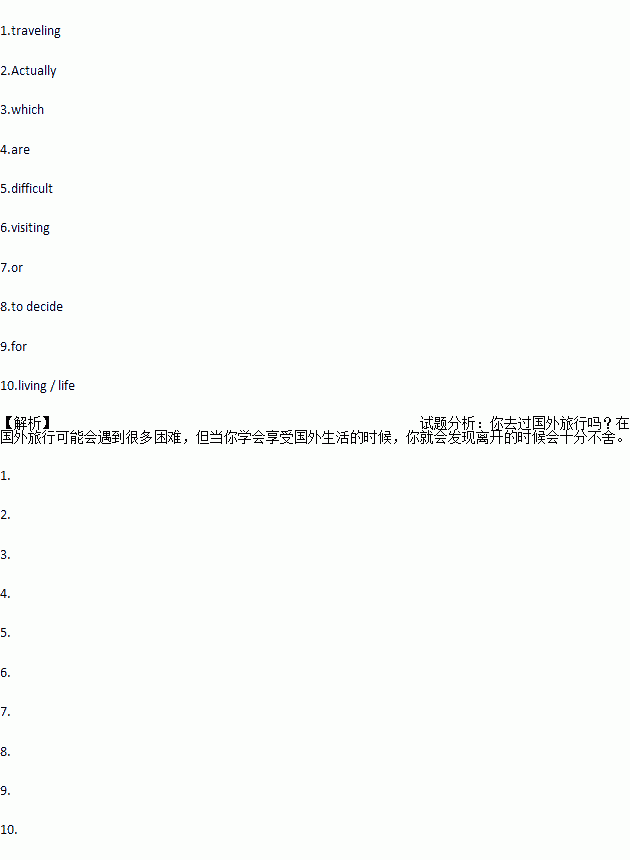题目内容
Have you ever gone1.(travel) abroad?2.(actual), it is interesting to visit another country,3.can broaden our mind and make us have an unforgettable experience, but sometimes there4.(be) some problems when we don’t know the language very well. It may be5.(difficulty) to talk with the people there. We may not know how to use the telephone in the country which we are6.(visit). We may not know how to buy the things we need. In a strange country we may not know where to eat7.what to order in a restaurant. It is not easy8.(decide) how much money to tip waiters or taxi drivers. When we are helpless, we may not know how to ask9.help. After a short time, however, we learn what to do and what to say. We learn to enjoy10.(live) in another country, and then we may be sorry to leave both the place and the people. It’s a pity, isn’t it?
 阅读快车系列答案
阅读快车系列答案
